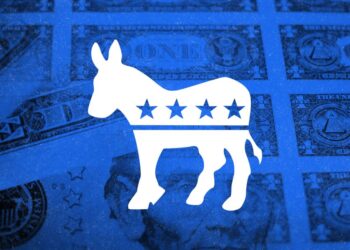PayPal’s decision to reinstate a controversial $2,500 fine for accounts spreading “misinformation” comes amidst the company’s Head of Global Public Policy and Research serving as a current World Economic Forum Young Global Leader.
PayPal’s Usman Ahmed, is one of 109 Young Global Leaders included in the World Economic Forum’s (WEF) 2022 class.
The WEF has been accused of exploiting issues such as COVID-19 and climate change to push its “Great Reset” agenda, which includes the abolition of private property. To implement its radical agenda, often relying on its Young Global Leaders to do so, the WEF has pushed for the use of digital identity-tracking platforms and “social credit score” systems – strikingly similar to PayPal’s new policy.
PayPal is also an official corporate partner of the WEF, and several high-level employees from the company have routinely contributed articles to the group’s site and participated in its events. Dan Schulman, the company’s President and Chief Executive Officer, has authored articles for the WEF including “Technology is delivering better access to financial services. Here's how” and “The thing that separates good companies from great ones: Trust.”
PayPal’s Head of Global Environmental, Social, and Governance (ESG) Strategy is also a member of the WEF’s Global Future Council on Social Cohesion and Just Transition.
In addition to being a WEF Young Global Leader, PayPal’s Ahmed has authored articles for the WEF website, including “To address inequalities we need a new vision for trade.”
“Active engagement by all stakeholders at all stages of the process â€" from research, consultation and policy development to implementation and capacity-building â€" will be essential in realising a truly inclusive approach to trade,” he adds.





